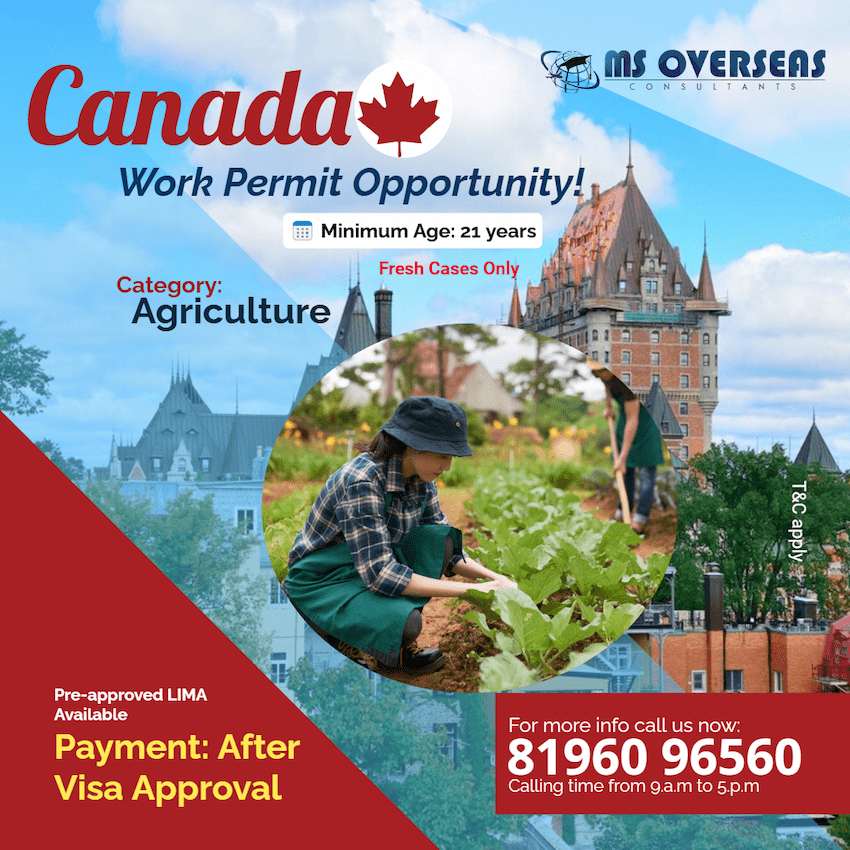Canada, renowned for its breathtaking landscapes, diverse cities, and welcoming people, is a top destination for travelers globally. Whether you’re eager to explore the bustling streets of Toronto, the serene beauty of Banff National Park, or the historic allure of Quebec City, it’s essential to know how long you can stay in Canada as a visitor. This comprehensive guide will provide you with all the details you need to make your visit smooth and enjoyable.
Visitor Status in Canada: The Basics
Typically, most visitors are allowed to stay in Canada for up to six months. However, the final decision on the duration of your stay is made by the Canada Border Services Agency (CBSA) officer at the port of entry. Here’s a detailed breakdown of the process:

Arriving at the Port of Entry
Upon your arrival in Canada, a CBSA officer will examine your travel documents and inquire about the purpose of your visit. Based on your responses and the documentation provided, the officer will determine the length of your stay.
Passport Stamping
The officer may stamp your passport and indicate the date by which you must leave Canada. This date is often six months from your entry date, but it can be shorter or longer based on your specific situation.
No Passport Stamp?
If your passport is not stamped, it generally means you can stay in Canada for six months from the date of your arrival or until your passport expires, whichever comes first. If there’s any uncertainty, it’s best to confirm with the officer before leaving the immigration area.
Requesting a Passport Stamp
For those who prefer having a stamp in their passport for personal records or clarity, you can request one from the CBSA officer. If you arrive at an airport using primary inspection kiosks, you can ask for the stamp after completing the kiosk process.
Extending Your Stay in Canada
Extending your stay in Canada requires careful planning and adherence to immigration regulations. Start by applying well before your current status expires. Determine eligibility by checking your visa type and ensuring compliance with conditions like employment or study. Gather necessary documents such as passport, proof of funds, and a letter detailing reasons for extension. Complete application forms accurately, and pay required fees. If approved, a new permit will be issued. Understanding rules, preparing thoroughly, and applying early are crucial for a smooth extension process in Canada.
Step 1: Submit an Extension Application
Apply for an extension at least 30 days before your authorized stay expires. To apply, you will need to:
- Complete the application form IMM 5708.
- Provide your passport details.
- Include proof of financial support for your extended stay.
- Write a detailed explanation of why you wish to extend your stay.
Step 2: Online Submission
Submit your application online via the Immigration, Refugees and Citizenship Canada (IRCC) website. Ensure all required documents are uploaded and the application fee is paid.

Step 3: Await the Decision
After submission, you must wait for IRCC to make a decision on your application. Processing times vary, so it’s wise to apply well in advance.
Step 4: Maintain Legal Status
While awaiting a decision, you can remain in Canada under “implied status,” meaning you can stay until a decision is reached, even if your initial authorized stay expires during this period.
Latest Guidelines
As of the latest guidelines, visitors to Canada can generally stay for up to six months from the date they enter the country. This applies to most foreign nationals holding a valid visa or coming from visa-exempt countries.
However, the final determination of the length of your stay is made by a Canadian Border Services Agency (CBSA) officer when you enter Canada. In some cases, the officer may authorize a stay shorter than six months, depending on your specific situation, or longer by issuing a visitor record.
Key Points:
- Standard Stay Duration: Typically, it’s six months from the date of entry.
- Custom Lengths: CBSA officers may reduce or extend this period based on factors such as your purpose of visit.
- Visitor Record: If you need to stay longer than six months, you can apply for an extension, which, if approved, results in a visitor record. You should apply at least 30 days before your authorized stay expires.
Indian Citizens Visiting Canada
- Visitor Visa Required: Indian citizens need to apply for and obtain a Temporary Resident Visa (TRV), also known as a visitor visa, before entering Canada. This visa typically allows stays of up to six months.
- Length of Stay: Like visitors from other countries, Indian nationals are usually allowed to stay for up to six months from the date of entry, unless a Canadian Border Services Agency (CBSA) officer specifies a different length of stay.
- Extension: If an Indian citizen wishes to stay longer than six months, they must apply for an extension before their current authorized stay expires. This is done by submitting a request to Immigration, Refugees, and Citizenship Canada (IRCC).
- Visa Conditions: The visitor visa only allows for temporary stays; you cannot work or study without the appropriate permits. You must also prove you have sufficient funds for your stay and intend to return to India after your visit.
Tips for a Hassle-Free Visit to Canada
- Bring All Necessary Documents: Have your passport, visa (if required), proof of funds, and travel itinerary ready.
- Be Honest with CBSA Officers: Answer all questions truthfully and provide any requested documents.
- Know Your Rights: Familiarize yourself with your rights and the conditions of your stay.
- Plan Ahead for Extensions: If planning to extend your stay, start the process early to avoid complications.
FACTS
1. Length of Stay:
- Standard Duration: Visitors are typically allowed to stay in Canada for up to six months from their date of entry.
- Decision by Border Officer: The final decision on how long you can stay is made by a Canada Border Services Agency (CBSA) officer upon entry. They may shorten or extend your stay based on the circumstances.
2. Visitor Visa (Temporary Resident Visa – TRV):
- Visa Requirement: Citizens of many countries, including India, need a visitor visa to enter Canada. Visa-exempt nationals may only need an Electronic Travel Authorization (eTA) if entering by air.
- Multiple Entries: A visitor visa can be single-entry or multiple-entry. Multiple-entry visas allow you to enter and exit Canada multiple times during the visa’s validity.
3. Extension of Stay:
- Application for Extension: Visitors who wish to stay beyond the initially granted period must apply for an extension. This must be done at least 30 days before the end of their authorized stay.
- Visitor Record: If approved, you’ll be issued a visitor record, which specifies the new length of stay.
4. Conditions for Visitors:
- No Work or Study Without a Permit: Visitors cannot work or study in Canada unless they obtain the appropriate work or study permits.
- Sufficient Funds: Visitors must demonstrate that they have sufficient funds to support their stay in Canada.
- Proof of Return: Visitors need to show evidence that they intend to return to their home country (e.g., return flight tickets).
5. Travel Insurance:
- Health Care Not Covered: Canada’s public health care system does not cover visitors. It’s advisable to purchase travel health insurance to cover any medical expenses during your stay.
6. Obeying Canadian Laws:
- Visitors must comply with all Canadian laws during their stay. Violations can lead to deportation or legal consequences.
7. Re-Entry:
- Even with a valid visa or visitor status, re-entry into Canada is not guaranteed. Each time you re-enter, a CBSA officer will reassess your admissibility.
8. Leaving Canada:
- You must leave Canada by the end of your authorized stay unless you’ve been granted an extension. Staying beyond your authorized period could affect future entries to Canada.
9. Types of Visitor Visas:
- Single-Entry Visa: Allows entry into Canada once. After leaving, you’ll need a new visa to re-enter.
- Multiple-Entry Visa: Allows multiple entries over the visa’s validity period, often up to 10 years or until the passport expires.
Benefits
Staying in Canada as a visitor offers various benefits, making it an attractive destination for tourists, family visitors, and individuals interested in exploring the country. Here are some of the key benefits of staying in Canada as a visitor:
1. Tourism and Natural Beauty:
- Scenic Attractions: Canada is home to some of the world’s most stunning natural landscapes, including the Rocky Mountains, Niagara Falls, Banff National Park, and vast forests and lakes. Visitors have the opportunity to experience its diverse natural beauty.
- Cultural Cities: Major cities like Toronto, Vancouver, Montreal, and Quebec City offer rich cultural experiences, historical sites, and vibrant arts and dining scenes.
2. Family and Friends Visits:
- Visiting Relatives: Many people visit Canada to spend time with family or friends who live there. Canada’s strong immigrant population means that family reunions are a common reason for visits.
- Super Visa: For parents and grandparents of Canadian citizens or permanent residents, the Super Visa allows extended visits of up to two years without the need for regular renewals, providing longer family time.
3. Safe and Peaceful Environment:
- Low Crime Rates: Canada is known for being one of the safest countries in the world, with low crime rates and a peaceful social environment. Visitors can feel secure while traveling around the country.
- Friendly People: Canadians are known for their politeness and hospitality, making visitors feel welcome and comfortable during their stay.
4. Multicultural Experience:
- Diverse Communities: Canada is highly multicultural, with a mix of people from different ethnic, linguistic, and religious backgrounds. Visitors have the chance to experience various cultures within one country.
- Language Practice: Visitors can practice and improve their English and French, Canada’s two official languages, through interactions with locals.
5. High Quality of Life:
- Clean Environment: Canada offers a clean and well-maintained environment, with good air quality and well-preserved public spaces, contributing to a pleasant stay.
- Modern Amenities: Visitors can enjoy access to modern infrastructure, including public transport, high-quality hotels, restaurants, and shopping centers.
6. Medical Care (with Insurance):
- World-Class Healthcare: Although visitors are not covered by Canada’s public healthcare system, they can access world-class healthcare services if needed, provided they have travel health insurance.
7. Events and Festivals:
- Cultural Events: Canada hosts numerous events and festivals year-round, such as the Toronto International Film Festival (TIFF), Montreal Jazz Festival, and Calgary Stampede, which visitors can enjoy.
- Winter and Summer Activities: Depending on the season, visitors can experience skiing, snowboarding, and winter sports or hiking, boating, and festivals in the summer.
8. Pathway to Future Immigration:
- Exploration for Future Residency: Many visitors use their stay as an opportunity to explore Canada as a potential place for future study, work, or immigration. For example, those on a visitor visa can research universities, job markets, or neighborhoods before making long-term plans.
- Visitor to Permanent Resident: In certain cases, visitors can transition to other immigration streams if they decide to stay longer, such as obtaining work permits or applying for permanent residency.
9. Educational Opportunities:
- Short-Term Courses: While studying long-term requires a study permit, visitors can participate in short-term courses (less than six months), such as language programs or specialized workshops, enhancing their skills during their stay.
10. Shopping and Dining:
- Tax-Free Shopping (for Visitors): Visitors can benefit from duty-free shopping at airports and may also be eligible for tax refunds on certain purchases, depending on the province.
- Global Cuisine: Visitors can enjoy a wide variety of international and local cuisine due to Canada’s diverse population.
11. Relaxation and Leisure:
- Spas and Resorts: Canada has many top-rated spas and resorts, providing a perfect environment for relaxation and rejuvenation, especially in nature-rich areas like the Rockies or coastal provinces.
In summary, Canada offers a rich blend of nature, culture, safety, and hospitality, making it a highly rewarding experience for visitors from around the world. Whether you’re visiting for tourism, family, or personal exploration, there are many advantages to enjoying your time in Canada.
Conclusion: the duration of stay for visitors in Canada is typically up to six months upon entry. However, it’s crucial to understand that individual circumstances and visa conditions may vary, influencing how long one can legally remain in the country. To ensure compliance with immigration laws and to explore extension options if needed, visitors should plan ahead, stay informed about visa requirements, and seek guidance from official resources or legal experts when necessary. This proactive approach not only facilitates a smooth stay but also enhances the overall experience of visiting Canada.
Contact us: Understanding visa regulations can be complex. If you have questions about your visitor status, need assistance with your visa application, or are considering studying or working in Canada, our team of experts is here to help. Contact us today for free expert advice on study visas, tourist visas, work permits, and more. Let us help you make the most of your time in Canada!
By following this guide, you can ensure a smooth and enjoyable visit to Canada. Remember, understanding the rules and planning ahead are key to a successful trip. Safe travels!

Disclaimer:
Visa regulations and duration of stay for visitors in Canada may vary. It’s important to consult official sources or legal advice for accurate and up-to-date information.
- The Rise and Challenges of Canada’s Temporary Foreign Worker Program
- Comprehensive Guide to Canada’s Express Entry Draw Results and the Provincial Nominee Program
- How has the Canada Citizenship Scheme changed over the years?
Also read:
- How Trump’s New Tariffs on Canada Could Impact Indian Students’ Budgets in 2025
- Canada Expands Work Hour Limit for International Students: A Game-Changer!
- Canadians Must Obtain ETA for U.K. Travel Beginning January 2025
- Canada Must Strengthen Efforts to Curb Misuse of Visitor Visas
- Canada’s Work Permit policy for International Students
